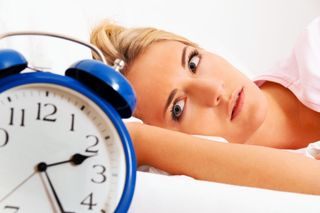Morning People Are Actually Happier Than Night Owls

Night owls often wake up for work or school with a scowl on their faces and wishing for an IV drip of coffee, while morning people come skipping in 15 minutes early. However, morning people aren't chipper just as the sun is coming up; they are happier and more satisfied with life overall, a new study suggests.
Teenagers' night owl tendencies fade as they age, and the study says this switch to a morning-focused schedule could be why older adults are happier than younger ones.
"Past research has suggested that morning-type people report feeling happier than evening-type people, and this research was only on young adults," study researcher Renee Biss, a graduate student at the University of Toronto, told LiveScience.
Early birds
The new study looked across the lifespan to see if the morning habits of older individuals contributed to their overall life outlook.
The researchers studied two populations: a group of 435 adults ages 17 to 38, and a group of 297 older adults, ages 59 to 79. Both groups filled out questionnaires about their emotional state, how healthy they feel and their preferred "time of day." [Life's Extremes: Early Birds vs. Night Owls]
By age 60, most people are morning types, the researchers found. Only about 7 percent of young adults are morning larks, but as the population ages, this switches — in the older years only about 7 percent of the population are still night owls.
Sign up for the Live Science daily newsletter now
Get the world’s most fascinating discoveries delivered straight to your inbox.
"We found that older adults reported greater positive emotion than younger adults, and older adults were more likely to be morning-type people than younger adults," Biss said. "The 'morningness' was associated with greater happiness emotions in both age groups."
Social jet lag
Morning-type people also tended to say they felt healthier than did night owls. The researchers said this could be because they are getting better sleep since they are naturally morning people. It could not only make them feel more alert, but actually impact their immune system.
"We don’t know why this is, but there are a few potential explanations. Evening people may be more prone to social jet lag; this means that their biological clock is out of sync with the social clock," Biss said. "Society's expectations are far more organized around a morning-type person's schedule."
For instance, most people rise early for work or school, even if they don't like it. "An evening person may go through their week feeling unhappy because they have to get up earlier than they would like to," Biss said.
One easy happiness booster? Hack your sleep schedule to turn yourself into a morning person. "One way to do it is to increase your natural light exposure early in the morning, and to wake up earlier and go to bed earlier," Biss said. "It's easiest if you have a consistent schedule, to make sure you are waking up at the same time every day."
The study was published in the May issue of the journal Emotion.
Follow Jennifer Welsh on Twitter @microbelover or LiveScience @livescience. We're also on Facebook & Google+.
Jennifer Welsh is a Connecticut-based science writer and editor and a regular contributor to Live Science. She also has several years of bench work in cancer research and anti-viral drug discovery under her belt. She has previously written for Science News, VerywellHealth, The Scientist, Discover Magazine, WIRED Science, and Business Insider.
Most Popular


